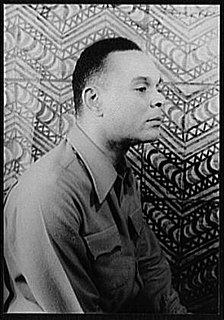A Quote by James F. Cooper
No star seemed less than what science has taught us that it is.
Related Quotes
I think evolution should be taught as an accepted principle. I say that also as the daughter of a school teacher, a science teacher, who has instilled in me a respect for science. I think it should be taught in our schools. I won't ever deny that I see the hand of God in this beautiful creation that is earth. But - that is not a part of state policy or a local curriculum in a school district. Science should be taught in science class.
She's alone, they kept telling themselves, and surely she danced in no one's arms, yet somehow that seemed to matter less and less. As the night went on, and clarinet and coyote call mingled beyond the lantern light, the magic of their own powder-blue jackets and orchids seemed to fade, and it came to them in small sensations that they were more alone than she was.
Elodin proved a difficult man to find. He had an office in Hollows, but never seemed to use it. When I visited Ledgers and Lists, I discovered he only taught one class: Unlikely Maths. However, this was less than helpful in tracking him down, as according to the ledger, the time of the class was 'now' and the location was 'everywhere.






































